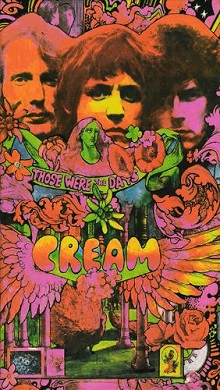This article relies largely or entirely on a single source .(July 2024) |
| Those Were the Days | ||||
|---|---|---|---|---|
 | ||||
| Box set by | ||||
| Released | 23 September 1997 | |||
| Recorded | 1966–1968 | |||
| Genre | ||||
| Length | 303:12 | |||
| Label | Polydor | |||
| Producer | Bill Levenson | |||
| Cream chronology | ||||
| ||||
| Review scores | |
|---|---|
| Source | Rating |
| AllMusic | |
| Uncut | |
Those Were the Days is a retrospective compilation of music recorded by the British rock band Cream, released on 23 September 1997. It comprises four compact discs and includes almost every studio track released during the band's active lifetime, with the exception of the original "Passing The Time" from Wheels of Fire , and all but three tracks from the live material recorded in 1968 and released on Wheels of Fire, Goodbye , and the two Live Cream volumes of 1970 and 1972. The title is taken from the song written by Ginger Baker and Mike Taylor, released on Wheels of Fire in 1968.